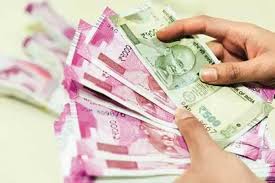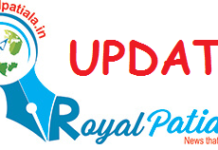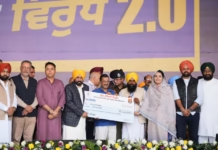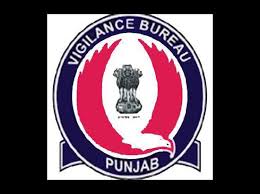Punjab govt to seek fiscal stimulus of Rs.51,102 crore from GoI to overcome economic crisis amid covid-19
Kanwar Inder Singh/ royalpatiala.in/ Chandigarh
Amid mounting economic woes, the Punjab Government has decided to seek a fiscal stimulus of Rs.51,102 crore from the Government of India, to help the state tide over the financial crisis triggered by the Covid pandemic and the prolonged lockdown.
A draft memorandum to this effect was approved on Wednesday by the Council of Ministers, at a meeting chaired by Chief Minister Captain Amarinder Singh. The Cabinet also authorised the Chief Minister to make necessary amendments to the draft memorandum before submitting it to the Government of India.
In addition to direct fiscal stimulus of Rs. 21,500 crore, the state government plans to seek waiver of the long-term CCL debt as imperative for the fiscal recovery of the State Government. Additionally, all central schemes should be 100% funded by the Government of India in FY 2020-21, as per the draft memorandum.
According to an official spokesperson, listing Health Infrastructure as a key priority in the post-Covid scenario, the state proposes to ask for Rs 6603 crore for improvement of the public health infrastructure from a long-term perspective. This also included sanction for setting up of Advanced Centre of Virology at a cost of Rs. 650 crore in the state, for which the Punjab government has already offered required land free of charge.
To contain the Covid-19 contagion in the rural areas, assistance of ₹5,068 Crore has been sought in the draft memorandum for liquid and solid waste management in the villages, in addition to upward revision of capital outlay and targets under MGNREGA.
The memorandum further seeks Rs 12560 crore for the Agriculture and Farming sector, mainly for up-gradation of farm gate infrastructure, providing income support, interest subvention, etc., with an additional amount of Rs 1161 crore identified as assistance needed for the Animal Husbandry and Dairy sector.
For Urban Development, the state government is proposing a National Urban Employment Guarantee Act (NUEGA) to guarantee employment in urban areas, along with an additional capital outlay of ₹2,302 Crore under Schemes like AMRUT, Smart City, PMAY etc., with certain relaxations. This is in addition to a grant of ₹1,137 Crore on account of revenue loss.

In the new post-Covid normal scenario, Human Resource Development also finds a prominent place in the memorandum and the state government is seeking assistance of ₹3,073 Crore for online education for uninterrupted learning, post-Covid preparedness of educational institutions, and to meet other requirements of school education and skill development.
In addition, support is sought from the Government of India for Industries, specifically MSMEs, for interest waiver, broader ESI/ EPF contribution, higher interest subvention and expeditious GST refunds, said the spokesperson.
The Cabinet took note of the fact that the lockdown has jeopardized the concerted efforts of the state government for achieving fiscal consolidation over the past three years. While the Government of India has considerable fiscal leverage, the State Governments have extremely limited fiscal space, especially after the implementation of the Goods and Services Tax, it noted.
Punjab is one of the highest debt-stressed State in the General Category States i.e. Punjab’s Outstanding Debt to GSDP ratio is 40.7%, which is significantly higher than States such as Maharashtra (17.9%); Karnataka (18.2%); Gujarat (20.2%); Tamil Nadu (22.3%); Andhra Pradesh (28.9%);Kerala (30.9%) and West Bengal (37.1%). The State, over the past three years, had been able to continuously reduce the Debt/GSDP ratio from what it had inherited – from 42.75% in 2016-17 to 40.77% in 2017-18 to 40.61% in 2018-19, reducing it further to 39.83% in 2019-20 (RE).
The State had hoped to continue the trend of reduction in this Outstanding Debt/GSDP ratio further to 38.53% in 2020-21 (BE). However, the exceptional circumstances triggered by the COVID-19 pandemic have scuttled its efforts.
May,27,2020













